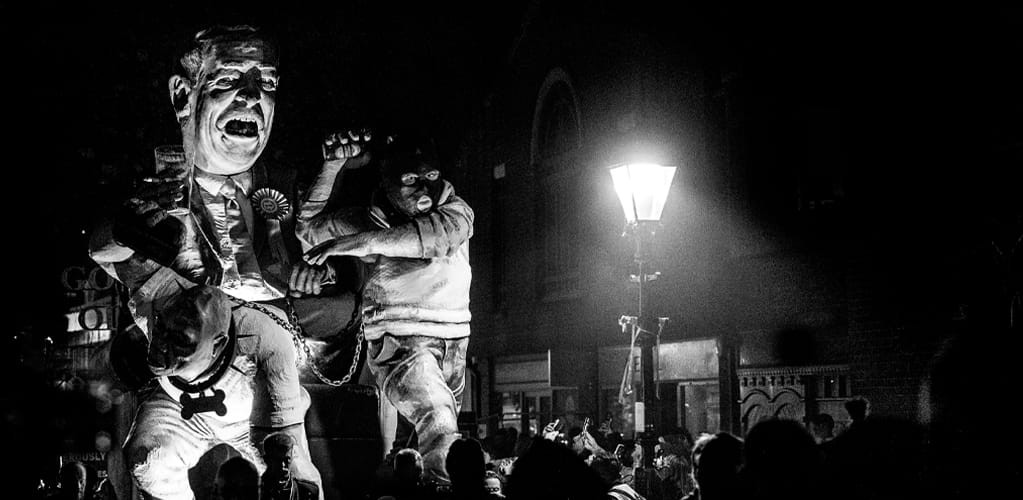Nigel Farage, AI and the revolt of the squeezed middle: Class politics is about to get messier than ever
Disillusioned working-class voters, largely ignored by major parties, increasingly risk shifting to Reform UK, especially those prioritising issues like immigration. Labour’s grip on key constituencies remains vulnerable, with slim majorities at stake.

TL;DR | Highlights from this story
● The neglect of working-class voters has led to increased disillusionment, with many turning to Reform or abstaining from voting.
● Cross-pressured voters, economically left-leaning yet socially conservative, are pivotal but challenging to attract within Britain’s two-party system.
● Low voter turnout, especially among working-class voters, has persisted since 2001, leaving Labour’s former strongholds vulnerable.
● Emerging shifts, including AI’s potential impact on the middle class, suggest a future where political affiliations and class structures are redefined.
T he neglect of working-class voters in the past few decades has had profound consequences for British political life. Disillusioned with the two main parties, many have turned to Nigel Farage’s Reform and others are simply not voting at all.
With the next election likely to be a tight race in many key constituencies, something must be done to win these voters back.
But as we find out in the fifth and final part of Know Your Place: what happened to class in British politics, a podcast series from The Conversation Documentaries, the relationship between class and voting could be about to become even more complicated. So it’s difficult for any party to know how to put an electoral coalition together.
Paula Surridge, professor of political sociology at the University of Bristol, has identified what she calls cross-pressured voters as a key demographic in post-Brexit British politics. These are people who are probably economically left-wing – they want better public services and wealth redistribution – but who are more right-wing on social issues such as immigration and crime and punishment.
In a system like we have in Britain, where we’ve got first past the post and two big parties to choose from, that creates lots of swing voters who, when economics is their priority as we saw in 2024, they might lean more to Labour. When immigration or Brexit or something along that dimension is their priority, they might lean towards the Conservatives or a party like Reform.
Appealing to such voters is therefore a real challenge. And while the perception is that they’ve flocked to Farage, Surridge says that’s not the full picture at all.
Many working-class voters were prioritising economic issues, public services. They don’t, on the whole, vote Reform for that reason. The voters for whom immigration was absolutely their most important issue, which are a much smaller group, they were very likely to vote Reform.
Reform came second in 98 constituencies – 89 of which ended up going to Labour. A lot of those constituencies were won on wafer-thin majorities, and they should be considered highly at risk in the next election. So working out how to appeal to cross-pressured voters is key.
The bigger challenge, however, is winning voters back from the sofa. The truth is that there is a more salient class divide in Britain: who actually votes at all.
According to Oliver Heath, professor of politics at Royal Holloway, University of London, who has tracked the history of turnout and class over the past 20 years, working-class voters are staying away from the ballot box. The first real signs of this were in 2001, when Tony Blair won a second term with a turnout of 59%, one of the lowest in British history.
2001 was when turnout fell off a cliff … and it dropped across all segments of society. But since then, turnout has rebounded quite a large extent amongst middle-class voters, but stayed very low amongst working class voters.
For decades working-class communities were assumed to vote Labour, and so Labour gave them relatively little political attention. Now, the tables have turned and its Labour constituencies in the Red Wall that are some of the most competitive in the country. But it won’t be easy for Labour to bring these voters back on side, says Heath.
Even after the great implosion of the Conservatives, the votes haven’t gone back to Labour. So, it’s hard to rebuild those connections once they’ve come undone.
Meanwhile, Rosie Campbell, professor of politics at King’s College London, warns that we can’t presume to know what middle-class voters will do either.
The backlash of the middle class in some areas against the Conservatives in what you would expect to be traditional Conservative heartlands is really interesting. And I think what it’s showing is that social change and demographic change are shifting our political landscape.
All this means that British politics is more fractured than ever, according to John Curtice, senior research fellow at the National Centre for Social Research.
It looks as though our politics isn’t two-party politics now, and it’s never looked less like two-party politics at any stage since 1945 … therefore there are many potential options as to how things might play out.
One of those options is a radical disruption to the class system itself, potentially triggered by artificial intelligence. A question that Curtice is asking himself:
Will class inequality still be articulated through the difference between people in working-class jobs and those in middle-class jobs, or those people who are very much at the creative end of middle-class jobs, who AI are probably not going to be able to replace, and those who are not quite in the same position?
In other words, AI has the potential to split the middle class and redefine the entire occupational structure of the UK. What will that do to our political preferences? It’s all to play for.

GOING FURTHER
For more analysis on what else could shape the way class and politics interact in the future, listen to the full episode of Know Your Place: what happened to class in British politics on The Conversation Documentaries.
Know Your Place: what happened to class in British politics is produced and mixed by Anouk Millet for The Conversation. It’s supported by the National Centre for Social Research.
Newsclips in the episode from Guardian News, BBC News, Nigel Farage, David Boothroyd, CBS News and the i paper.












[Read our Comments Guidelines]